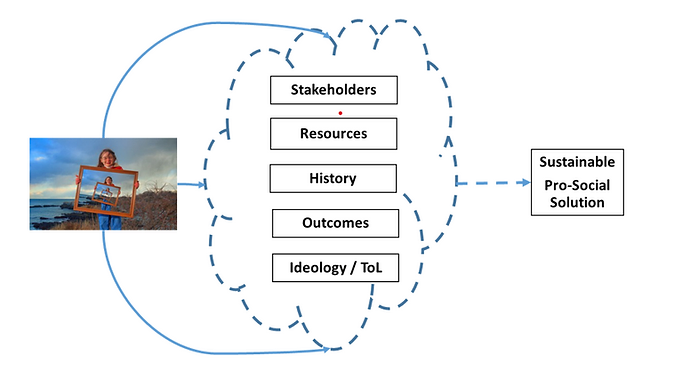
Sustainability in Practice is a year-long experiential learning course which provides our business students with a unique experience to recognize and understand the challenges of human existence, and build their capacity for the development of effective and implementable solutions. This unique initiative was introduced by our Director, Prof. Padmakumar Nair in 2015. This course is an obligatory part of our MBA curriculum accounting for 6 credits, which makes it one-of-its-kind initiative for inculcating sustainability to business students among management schools in India.
We understand that the business students of today are future decision makers of tomorrow. Through this course, we aim to inculcate a sustainability mindset that would enable them to anticipate and tackle these complex sustainability problems, and engage in the collective process of creating a better world. The core aspect of this course are the student-driven projects intended to generate a positive impact in the society.
In teams, the students design and execute real-life projects guided by UN Sustainable Development Goals (SDGs) which are dedicated to resolve sustainability challenges faced by society and businesses. Each team choses a societal problem they are concerned about, designs a project with expected objectives of intended sustainability impact, and implements it with a variety of stakeholders. Each team is supported by an experienced faculty member who mentors them throughout the process of development and implementation of the project. The beauty of this course is that it engages everyone from our institute, our students, faculty, staff and top management come together to interact with the societal issues that surround us and collectively figure out what can be done to alleviate these.
CHALLENGES OF HUMAN EXISTENCE
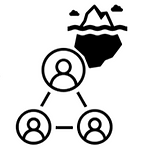
UNDERSTAND
EXPERIENCE
INTERACT
ENGAGE
EMPATHISE
STAKE
HOLDERS

REAL-WORLD-PROJECT

DESIGN
EXECUTE
CREATE
EVALUATE
POSITIVE
IMPACT
FOR
SOCIETY

Our MBA students are likely to be more sensitive to the need for sustainable development and adept at developing implementable solutions to complex unsustainability problems affecting society and businesses. Through SiP, students are able to:
SiP is a wholesome course which helps students develop a critical understanding of the need for sustainable development and trains them to tackle challenges they might face in this pursuit while simultaneously polishing a multitude of skills to transform them into excellence seeking business professionals.
One of the ideas we intend to challenge that some external entity is responsible for the problems that surround us. Every time I ask someone in our country ‘Who is responsible for our broken roads?’, mostly I receive the answer as ‘Sarkar’ as if it’s some external entity which has nothing to do with us and we cannot affect it. What we usually forget is that underlying every ‘sarkar’, there are people like us making decisions which can make or break our society. This is one of the important realizations at the core of SiP.
Whenever I describe this course to anyone, their first reaction is ‘What has sustainability got to do with business?’. This is one of the beliefs we wish to challenge. Sustainability has everything to do with Business and decisions made at businesses have so much influence in sustainability of society. I believe this is one of the most exciting and valuable courses an MBA school can offer. I am grateful for the opportunity to facilitate this transformative experience.
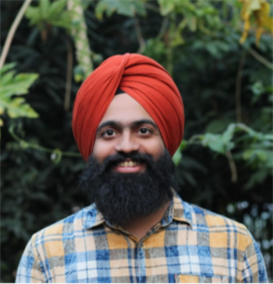
Read what our students are saying about SiP experience
With the need to cater to a population of more than 1.3 billion, India’s economy has been growing at a fast pace. Such accelerated development has engendered phenomena such as degradation of environmental conditions and their corollary social challenges which are being witnessed in different parts of the world. The most pressing example of this is the phenomenon of Climate Change. Since our campus is set up in the vicinity of a number of polluting SMEs, we have had an intimate experience of this forced encounter with the problem of environmental pollution.
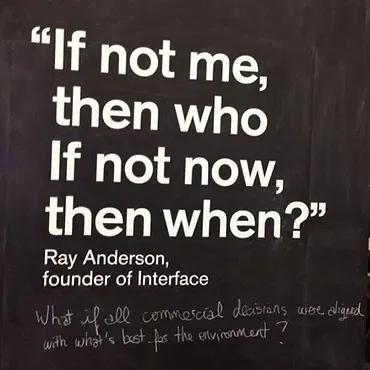
After acknowledging the existing scenario, the director of our school, Prof. Padmakumar Nair came up with a vision of New India to be a model state grounded in the ethos of sustainability and inclusiveness. He understood the significance of training future leaders in this ethos of making right business decisions, and thus decided to make social responsibility and sustainability an integral part of our business curriculum. Sustainable Business Strategies and Social Entrepreneurship were therefore introduced as core courses in the MBA program.
LMTSM become a signatory member of The Principles for Responsible Management Education (PRME) in 2015. PRME is a United Nations initiative committed to the objectives of raising the sustainability profile in business education, and to equip the present generation of business students with an awareness of sustainability that might oil the wheels for significant changes in the years to come. Our director realized that such innovations in curriculum may also gradually extend to the underlying practices of the businesses and society around us. This pursuit of innovation led to the inception of Sustainability in Practice course, as it offers a chance to our MBA students to become leaders of positive change in the society.
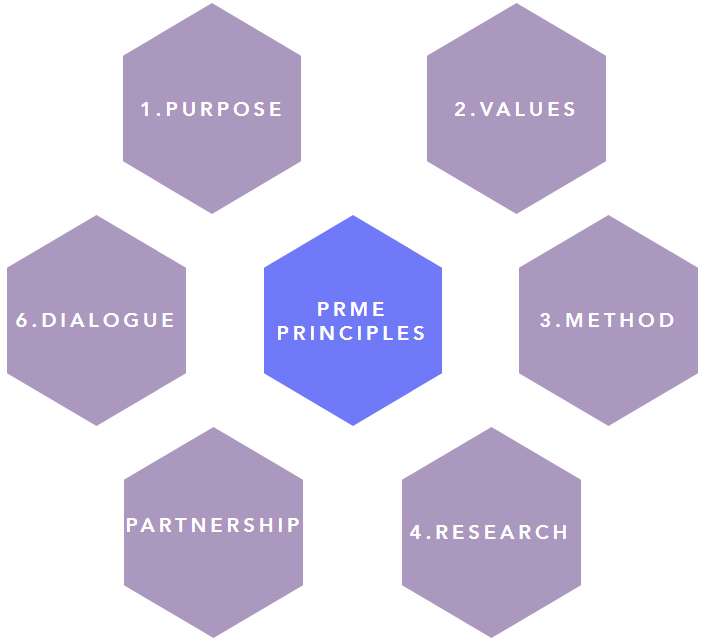
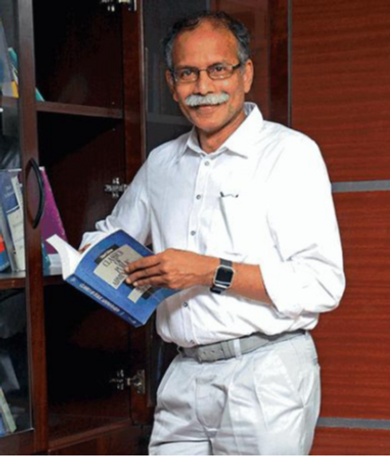
Dear Fellow Humans,
Business schools worldwide face the challenge of educating a new generation of managers and business professionals with a sustainable passion for sustainability. This challenge is accentuated by the fact that various subjects in a modern business curriculum see sustainability differently. For example, traditional business economics gives importance to sustainability only if it makes economic sense to enhance the business's profitability. Marketing and strategy disciplines may see it as an opportunity to signal a positive intention to the market and other stakeholders. There is no uniform approach to discussing sustainability in an MBA classroom.
At LMTSM, we believe that what is suitable for the corporation should be good for society, the country, and ultimately the world. This view of sustainability is the foundation of our sustainability curriculum. I want to take this opportunity to express my gratitude towards all our students and colleagues who are working passionately to make the learning experience at LMTSM one of the most memorable for all of us. This is in line with our motto: "we replace teaching with learning wherever possible."
Since the inception of this course, more than 900 MBA students have participated in this unique experience. They have worked with innumerable stakeholders from local schools, hospitals, businesses, villages, NGOs, and the government. Every year we have about 30-35 student-driven projects generating positive impact in various domains spanning education, health, creating economic opportunities,agriculture, food and nutrition, public infrastructure, gender equality, and even corruption
We are filled with gratitude when we receive positive feedback from the stakeholders of these projects about the passionate work of our students and faculty colleagues. Some of these projects are passed on over years and some are only executed for a year. It’s hard to capture the whole transformation that students go through while experiencing this course. Here are snippets of the journey of some of the projects.
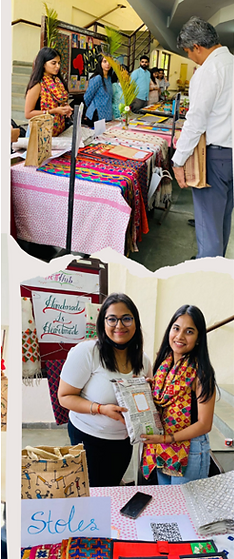
Realizing the limitations of traditional artisans in tech capability, Kala-Hub's worked to build a platform that bridges the gap between artisans and consumers by providing them with an easily accessible market, both online and offline. The group identified self-help groups in the nearby area who had been making traditional handicrafts and helped them market the products by building a website and running an Instagram page to build an online presence. They even set up exhibition stalls at various educational events where they sold handmade phulkari’s, portfolio folders, sarees, and stationary made by these rural women artisans


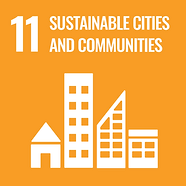
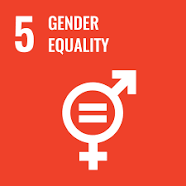
We have come a long way, particularly in terms of women's becoming more equal under the law. Fortunately, workplace discrimination is now a crime, but unfortunately, women still experience it. Fortunately, sexual harassment is now a crime, but unfortunately, women still experience it. Fortunately, assault on women is now a crime, but unfortunately, women still experience it. The list goes on; women are being harassed every day, verbally or physically, and there is not enough monitoring to give women back their rights in the male-dominated society we are living in, but the truth is that women are not weak; they just don’t know how to react in a certain way, because they haven’t discovered their potential yet.
The project "Empowering Women through Self-Defense," is aimed at providing training to strengthen women's capacity to defend themselves against any form of attacks and increase their self-confidence. The team created a social media page to influence and motivate women to learn self-defense and tell them about the benefits of self-defense. Multiple self-defense training programs were organized at our campus with the help of an instructor who trained our students about various self-defense techniques. In addition, an online self-defense training webinar was organized to reach a farther audience. The team also launched a startup on LinkedIn through which they shared stories of unsung heroes, their work, and what they have done
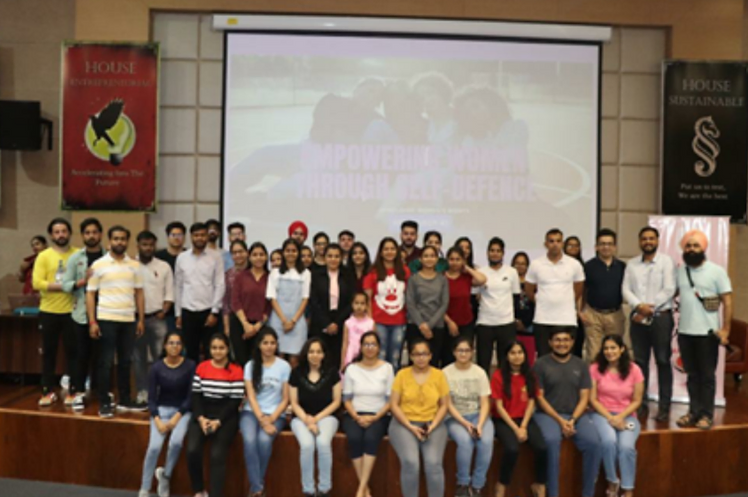
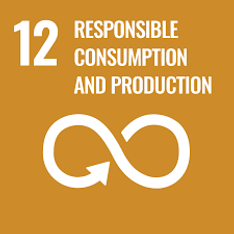
This project is aimed at influencing the fashion consumption habits of the students of LMTSM. The team aims to encourage and conduct activities with students which would promote the idea of circular economy in their fashion choices. They focused on creating awareness on the idea of Sustainable Fashion and then encouraged students and faculty to volunteer to donate their clothes which they do not use. Seeing the collection of apparels and accessories, the team set up a thrift store named Moda Ethique which catered to all our students and faculty.
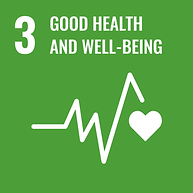
Team Tamrakut aimed to target tobacco addiction through raising awareness and design ways to intercept at various stages of addiction. The team has been raising awareness through webinars, one-to-one interactions, counselling, school competitions and a panel discussion with a wide variety of participants including children, mothers, school students, college students and health experts. The Team developed an innovative intervention at Institute of Dental Sciences, Bareilly where dental patients would be nudged to go to Tobacco Cessation Cell if tobacco consumption is detected in their dental checkups. They plan to bring this intervention as an SOP (standard operating procedure) to more dental schools. Another notable mention is an app the team is developing which would help people willing to give up tobacco.

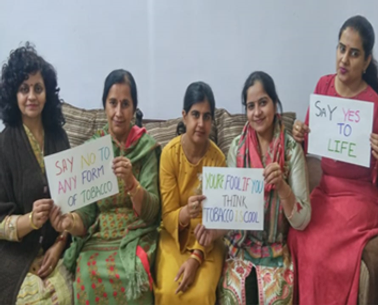
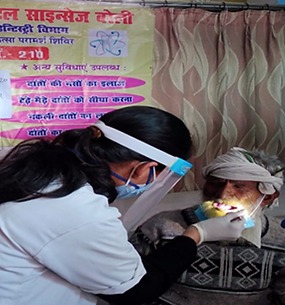

This team worked to bring more revenue generation opportunities to traditional artisans of India. In the first stage, they connected with traditional artisans from different parts of India. The products of artisans, histroy of the art or craft, and personal stories about the artisans are enlisted on their Instagram handle to raise awareness about the history of traditional art in India and help artisans reach a wider audience. This initiative has helped artisans generate more sales and the team has received appreciation from the community of artisans


The course introduces the idea of sustainable development and lets the students explore interdisciplinary aspects of sustainability like environment, ethics, society, natural resources, and economics to understand the inevitability of sustainable development. Students are also introduced to and trained in several frameworks, such as SQCA, 6E and Reframing, to understand sustainability related issues in the business value chain and critically explore innovative solutions. Some of these frameworks are developed in-house at LMTSM, like 6E framework and Reframing.

